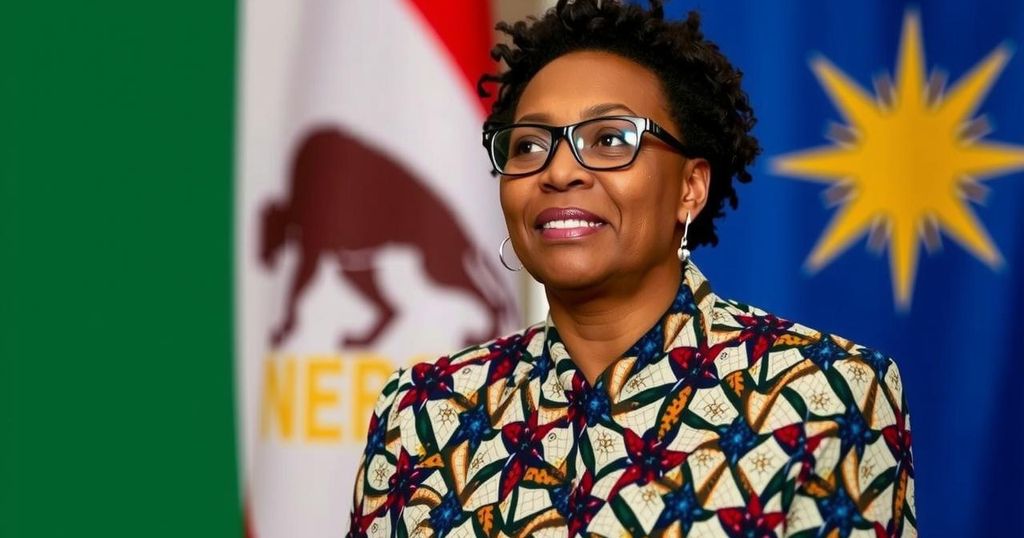Netumbo Nandi-Ndaitwah of the South West Africa People’s Organization is set to become Namibia’s first female president, having secured over 58% of the votes in a disputed election. Her opponent, Panduleni Itula, has claimed electoral malpractice, and his party plans to challenge the results. This election’s outcome is reflective of broader regional political trends affecting liberation parties.
In Namibia, Netumbo Nandi-Ndaitwah, a prominent figure from the governing South West Africa People’s Organization (Swapo), is poised to become the nation’s inaugural female president. According to reports from the electoral commission, she has secured over 58% of the vote following last week’s contentious election, with her nearest competitor, Panduleni Itula of the Independent Patriots for Change, garnering approximately 25% of the votes. However, Itula’s party has expressed intentions to contest the election results, citing allegations of electoral malpractice amid logistical issues during the polling process. Swapo, which has maintained a stronghold on power since Namibia’s independence in 1990, previously endured significant scrutiny regarding its electoral performance, particularly after experiencing a reduction in voter support during the 2019 elections. Should Nandi-Ndaitwah be confirmed as the victor, she will join a rare group of female heads of state in Africa; currently, only Tanzania’s Samia Suluhu Hassan holds that distinction.
The recent elections in Namibia have garnered significant attention, particularly in light of the potential historic election of Netumbo Nandi-Ndaitwah as the first female president. The Swapo party, which dominated politics since independence, is facing challenges reminiscent of trends seen in neighboring countries, where former liberation parties have faced declining support. The electoral process has been marred by allegations of irregularities, prompting the opposition to dispute the results. Nandi-Ndaitwah’s rise to prominence reflects both her extensive experience in government and the contemporary shifts in political dynamics within the region.
The prospective election of Netumbo Nandi-Ndaitwah as Namibia’s first female president marks a significant moment in the nation’s political history. While her current lead indicates robust support, the opposition’s challenge to the election results underscores ongoing tensions regarding electoral integrity. As Namibia navigates these developments, the implications for Swapo’s future leadership and the political landscape in southern Africa remain pivotal. The global community will observe closely how this situation unfolds, particularly given the precedents set by recent electoral changes in the region.
Original Source: www.bbc.com






